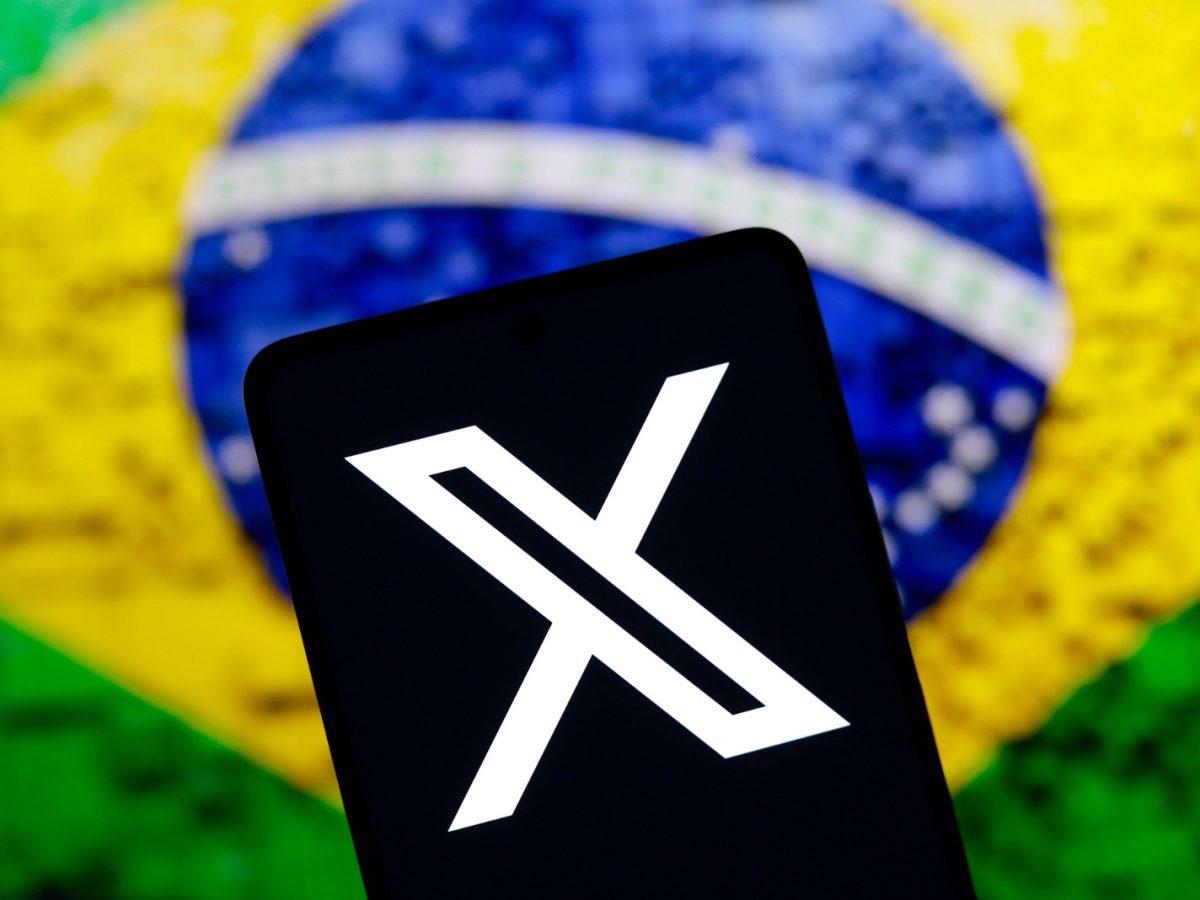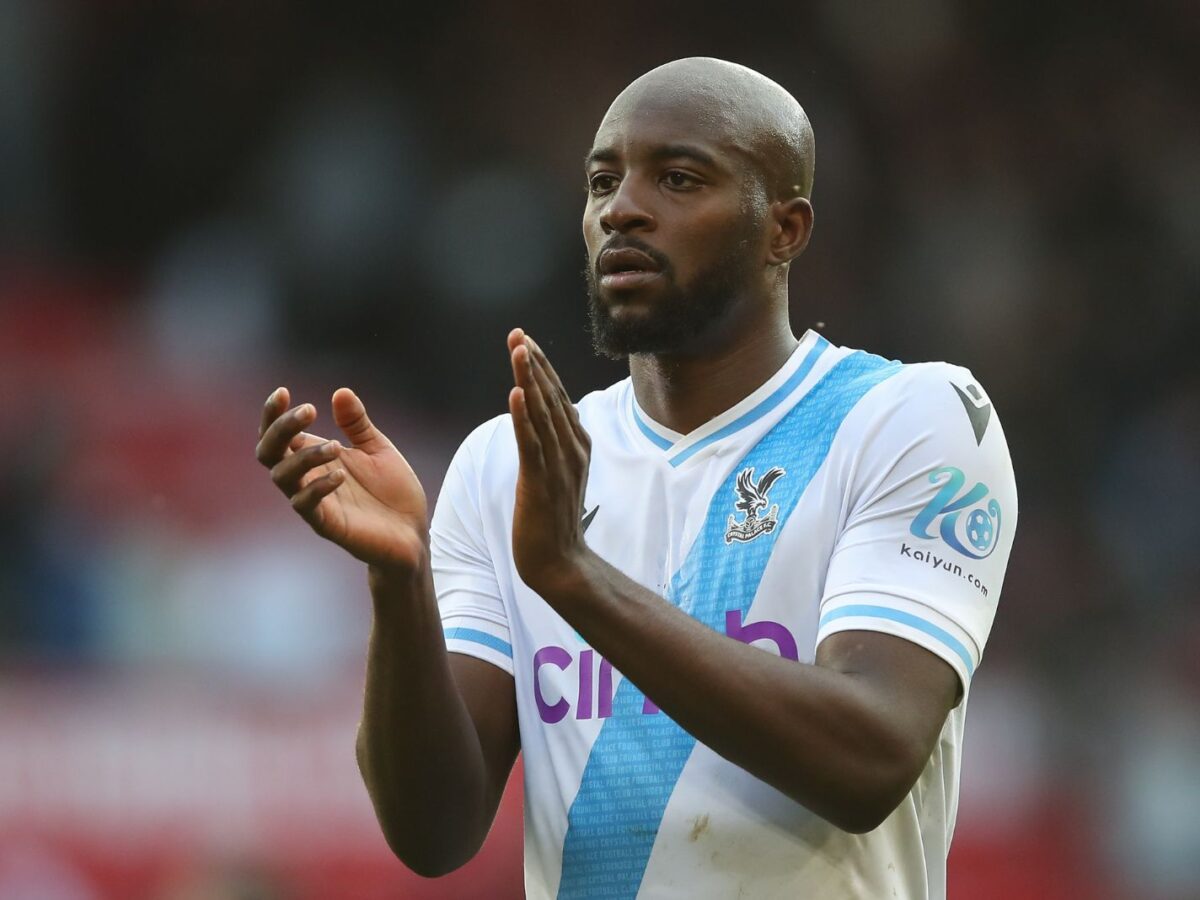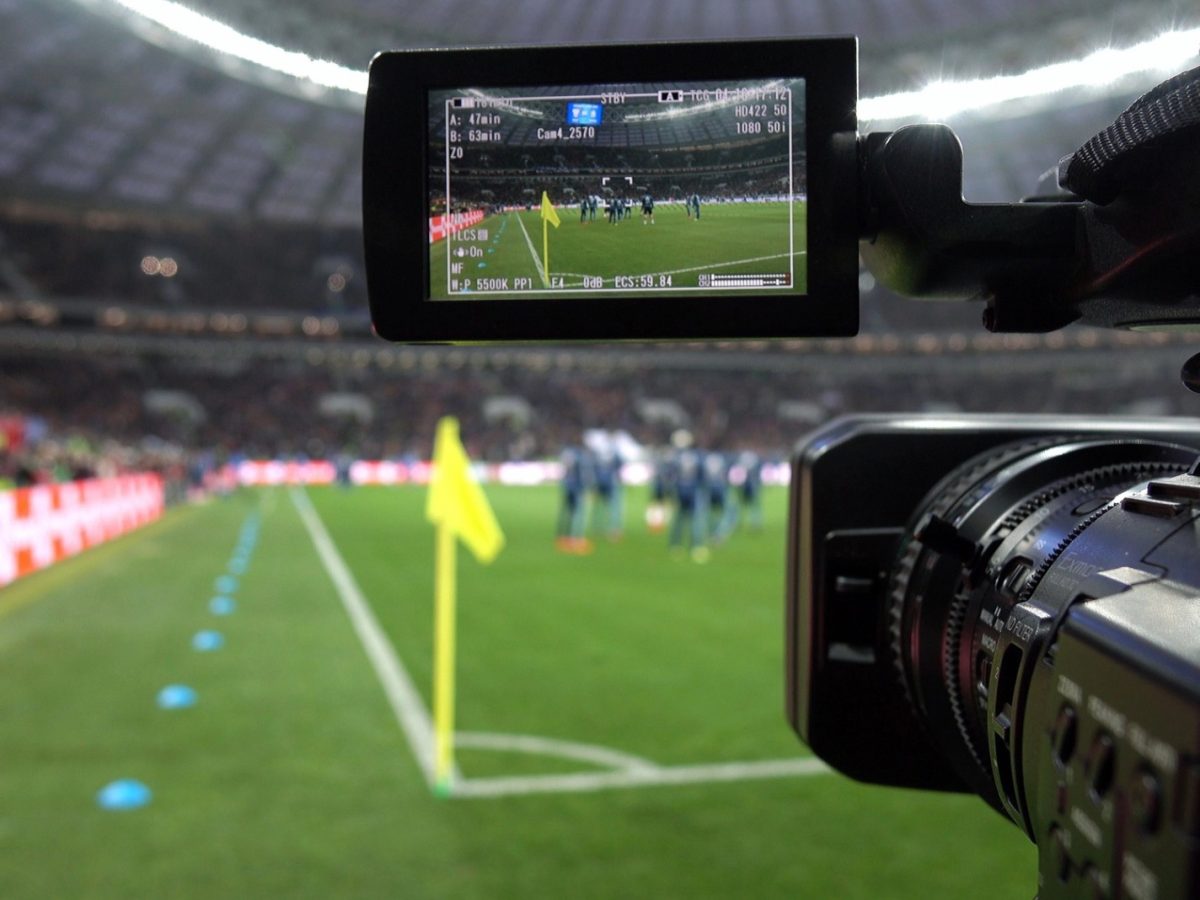England have had a confusing start to the World Cup. They won their first game by absolutely demolishing Iran 6-2, but then went on to draw 0-0 against the USA in a pretty boring game.
The first game had all the English stars finding the spotlight for themselves, with Saka scoring 2, Bellingham scoring the opener, and Rashford, Sterling, and Grealish all finding the net once too. Saka shone the brightest of the lot and took away the Man of The Match after a brilliant night.
Naturally, one would expect the BBC to post the score of the full-time game with a photo of the man of the hour – Saka. However, they decided to go with the photo of Jack Grealish, a substitute, instead and made little mention of Saka with the scoreline.
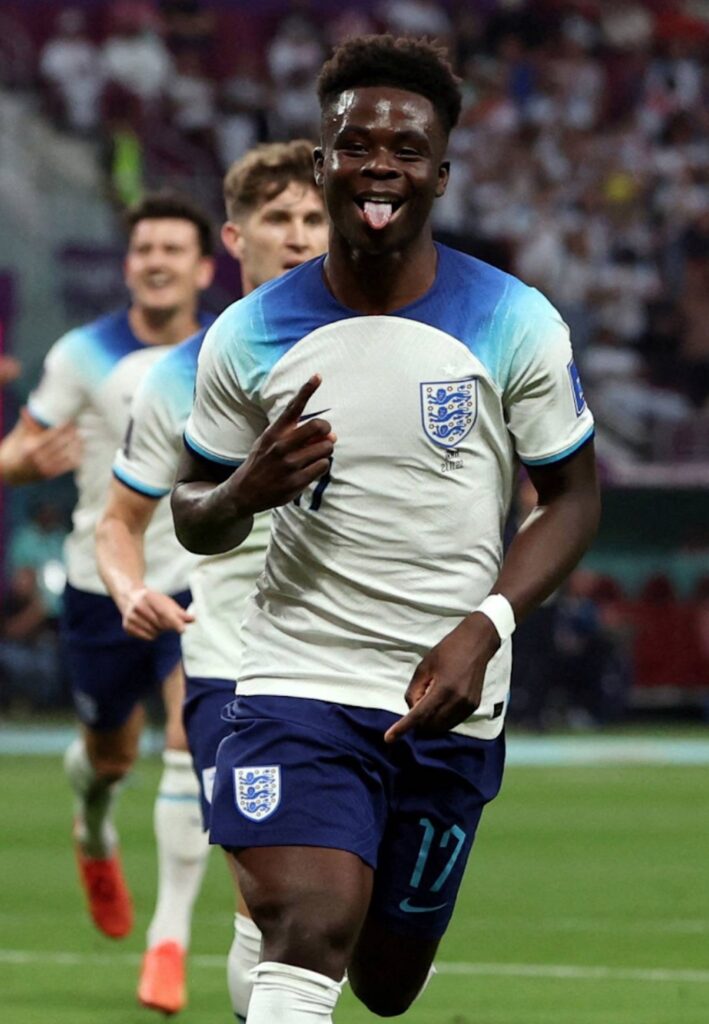
One Twitter user made a bold claim after this and said that the only time the BBC would use Saka’s photo was when they had a bad game.
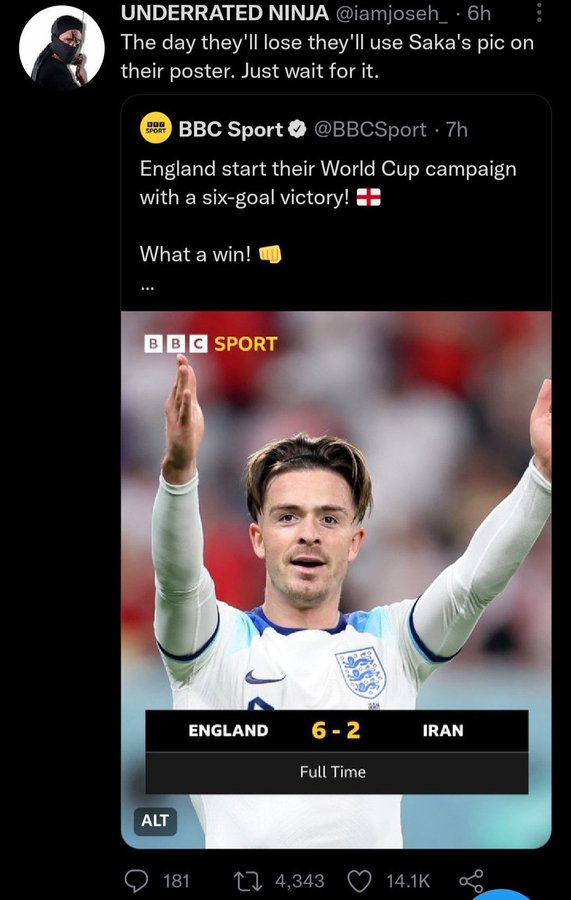
And surprise surprise, that’s exactly what they did.
After England drew 0-0 against the USA in an embarrassing fashion, the broadcasting company posted the scoreline with Saka’s photo. Saka did not have the best of games, but neither did the rest of the squad. Moreover, the random Twitter user being absolutely spot on was worrying.
Twitter users accused BBC of being subtly racist by promoting white players as the poster boys for wins, and black players as the face for bad performances. Choosing England’s MoTM in the first game as the image of the second game was a confusing choice, and added fuel to the flame.
Players of colour have been significant for the team, and 5 of the six goals scored by England against Iran were scored by these players. Yet, it was the white one in Jack Grealish that got the shout-out for the win. Makes sense?
Against the USA, Harry Kane was the only player from both starting lineups to have a Sofascore rating below 6.5. As is the trend, no mention of him was made after the loss.
As viral as that tweet was, it was slightly misleading. After the Iran game, the BBC did eventually post Saka’s stats and posted his photo not just once but multiple times. The only difference was that these posts weren’t the full-time posts that end up being shared the most.
Either way, this isn’t the first time the English media has been called out for differential treatment. Sterling has often been used as a scapegoat and a target by the media, while Harry Kane has been protected.
Sterling even publicly spoke out against this a long time ago, but it does not look like a lot has changed.
These claims made by fans and players are not unfounded. Racist beliefs and messaging in sports media are strongly correlated, according to an academic study that dates back at least to the 1960s.
In 1979, American researchers found out that unfavourable news items are more likely to be remembered when they are about “outgroups,” which are mainly groups of racial minorities in largely white newsrooms.
In their 1974 book “Racism and the Mass Media”, authors Paul Hartmann and Charles Husband stated that the British media presented a poor picture of black Britons to the white populace, forming unfavourable views and attitudes regarding racial minorities.
Although this tweet by the BBC may seem inconsequential, and may even be misunderstood, it is something that is entirely preventable and correctable.
A small tweet goes a long way in breaking the trust between the fans and the organisation, and it is bad PR not only for BBC but also for the players, who are giving their heart and soul to the nation.
All eyes are on the next England game now, which they play against Wales. Whichever side the result goes, it would be clear if the BBC has heard the fans or not.

 (@sterling7)
(@sterling7)